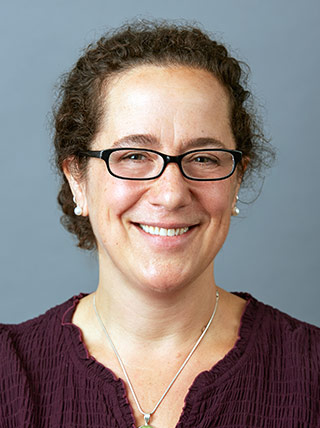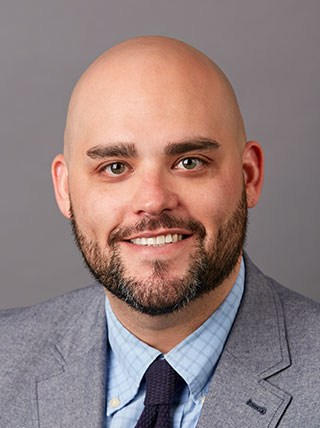 Rachel Gold, PhD, MPH
Rachel Gold, PhD, MPH
Health care providers and funders are growing increasingly aware of the need to understand patients’ social determinants of health (SDH). Social determinants of health are non-medical factors that impact a person’s health—factors such as not having a place to sleep. Not having enough to eat. Not having transportation. Not having the money to fill a prescription.
Social determinants of health contribute greatly to health disparities, and their effect on health outcomes is so significant that addressing SDH may be as important to health as addressing medical needs. This is especially true in community health centers (CHCs), which serve patients who are often uninsured or underinsured, and have higher health risks than the general U.S. population.
The growing awareness of the importance of SDH is changing how health care is delivered at Kaiser Permanente, OCHIN, Inc. (a nonprofit organization that provides health information technology services to CHCs), and around the nation.
 Matthew Banegas, PhD, MPH
Matthew Banegas, PhD, MPH
My fellow CHR Investigator Matthew Banegas and I are part of a new KP-wide effort called SONNET: Social Needs Network for Evaluation and Translation: Addressing the Social, Economic, and Behavioral Needs of KP Members. This initiative is bringing together KP staff across different regions, drawing from research, Kaiser Permanente’s Community Benefit program, and other departments.
Dr. John Steiner, Senior Investigator at the Institute for Health Research at KP Colorado, leads this effort. SONNET’s mission is to understand and share information about Kaiser Permanente’s work related to SDH in clinical care, research, and in our communities. SONNET is encouraging new ways to learn about and address social needs, and will also facilitate evaluation of these efforts. SONNET also seeks to ensure that learnings related to the identification and management of SDH needs are shared across KP regions and beyond.
At Kaiser Permanente Northwest (KPNW), many high-risk patients’ social needs are now being assessed with a questionnaire called “Your Current Life Situation,” which was developed at the Kaiser Permanente Care Management Institute in Oakland, California. About 30 patient navigators at KPNW work to meet the needs identified by this questionnaire—for example, by arranging transportation; securing financial assistance for things like rent, food, and diapers; and whatever else is needed to help patients with the non-medical issues that affect their health.
Leveraging the Power of Electronic Health Records
 According to health policy leaders, health care providers should routinely collect data on social determinants of health in patients’ electronic health records.
According to health policy leaders, health care providers should routinely collect data on social determinants of health in patients’ electronic health records.
At the Center for Health Research in Portland, Oregon, my team is studying how to help CHCs use electronic health records (EHRs) to identify, review, and act on patients’ social needs. We hope what we learn will be helpful to those working in other health care settings as well.
I’m leading this work, in partnership with OCHIN and with researchers from Oregon Health & Science University, because of the pressing need to learn how to address SDH. If CHCs could systematically document patients’ SDH needs and the actions taken to address those needs—such as referrals to community social services, or adaptations to the care plan—it could help them integrate patients’ social and medical needs, with important potential health impacts.
Given that EHRs are already widely used to store information on patients’ medical needs, health policy leaders—including the authors of the Center for Medicare and Medicaid Services’ 2016 Quality Strategy—recommend that SDH data be regularly collected in EHRs. Yet, little is known about how CHCs or other primary care providers should do this. Although CHCs have historically tried to address the SDH needs of their patients, these attempts have rarely involved clear processes for documenting this information in a way that enabled regular review and effective use of these data.
What Are We Studying?
ASSESS & DO: My team at the Center for Health Research first conducted a pilot study called “ASSESS & DO,” funded by the National Institute on Diabetes, Digestive, and Kidney Disorders (NIDDK). This study sought to identify how best to collect, document, and present SDH-related data in EHRs.
Working with three CHCs and OCHIN’s clinical leadership, the team sought feedback from stakeholders during a yearlong process to build SDH Data Tools in the EHR. Most of these tools were made available to OCHIN’s 500-plus member CHCs in June 2016.
Preliminary results suggest that it is feasible to build and implement EHR tools for SDH data collection, review, and action in CHCs. Within 13 months at the three pilot clinics, 1,130 patients were screened, and 211 patients had SDH-related referrals documented in the EHR. However, the clinics faced many barriers to adopting and using these EHR tools—some of which aligned with previous research on collecting patient-reported data, and some of which were specific to SDH adoption. The need for SDH screening is profound: almost all screened patients identified at least one “social need.”
ASCEND: In the ASCEND trial, also funded by NIDDK, my Center for Health Research team will study methods for helping CHCs adopt SDH Data Tools. We will survey staff at 12 OCHIN CHCs that are collecting SDH data without external support about their best practices, and ask what SDH-related decision support would be useful. Following this survey, 30 more CHCs will receive intensive coaching and tailored support in collecting, reviewing, and acting on SDH data. The team includes expert consultants from around the country.
We Can and Will Address Social Determinants of Health!
I’m proud to be a part of Kaiser Permanente—an organization that recognizes the need to connect our members to the right resources to help them take care of themselves and their families. I’m hopeful that my team’s research will identify the best ways to uncover and meet those needs. And I am confident that the SDH-related efforts at OCHIN, KPNW, and other KP regions can and will help improve health for patients in CHCs, at Kaiser Permanente, and beyond.
For more information: rachel.gold@kpchr.org